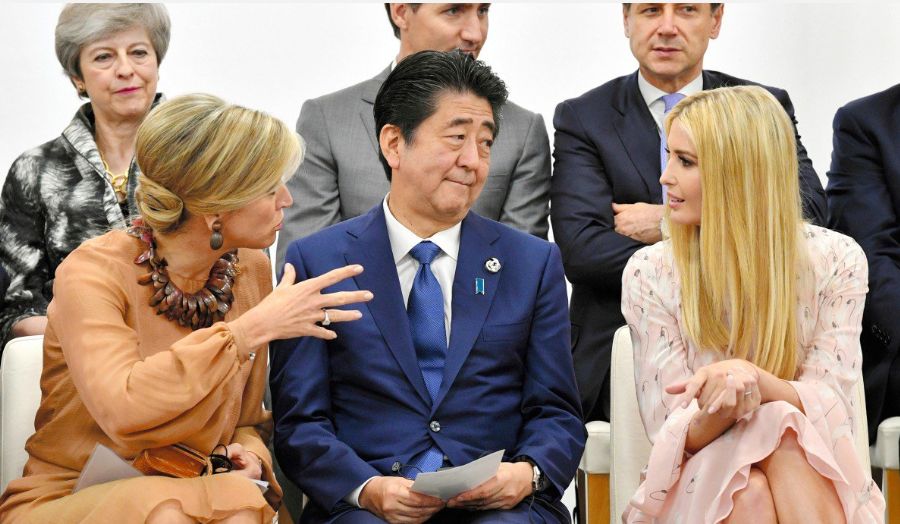NICOLE ALAVERDIAN WRITES – The G20 Summit, held June 28th and 29th in Osaka, garnered the attention of the international community as top government officials from each member country came together to talk about pressing global issues. Some topics on the agenda: the trade war debacle and climate change.
Japan, in particular, sought to spearhead the conversation on climate change, and to establish itself as a “climate leader.” In the weeks leading up to the summit, Prime Minister Shinzo Abe stated that climate change would be “one of the most important themes of the G20,” adding that he will exercise “firm leadership” and hoping that Japan as a whole will “play a leadership role” on this paramount issue.
To this end, Japan urged world leaders to endorse a deal aimed at reducing marine plastic waste. Essentially, what the deal entails is this: The G20 will require each country that signed onto it to reduce plastic waste.
But that’s all that is known of this open-ended deal. No legally binding rules have been established, and there is no clear timeline or projected goals to reduce the plastic pollution that has consumed our oceans. So how can we expect other countries to take a meaningful part in such an important move when its terms and conditions are seemingly non-existent and vague?
And there’s another problem. For all of Japan’s stated good intentions, reports have surfaced that Japan is moving too slowly and falling behind on its own part of the promise. Many activists were quick to point out that, while the deal has the potential to become a progressive movement, Japan itself has yet to boost its own environmental record. For this reason, many environmentalists are questioning Japan’s true intentions.
In fact, Japan produces more plastic waste per capita than any nation, that is, apart from the United States. Japanese may pride themselves on their waste management system, which allows 86% of its plastic waste to be recycled; but that “recycling” process consists of incinerating plastic, a process known to generate carbon dioxide and, paradoxically, to be one of the biggest contributors to climate change.
In addition, Japan continues to face scrutiny because of its use of coal— another notorious contributor to climate change. Japan has made the effort to modernize its coal industry, with 12 plants already up and running and 25 more expected to be built in the future. But this comes as a shock after the historic Paris Climate Agreement of 2016—when Japan, along with nearly 200 nations, committed to keeping global temperatures below two degrees Celsius through various mitigation and adaptation efforts.
Many countries, including Japan, are not on track to meet their climate targets. Furthermore, a recent UN report states that slowing down the rise in temperatures, as outlined in the Paris Climate Agreement, is not enough to protect the millions of people projected to be affected by its adverse effects. The report states that “even the unrealistic best-case scenario of a reduction in warming (1.5 degrees Celsius, or 2.7 degrees Fahrenheit) by 2100 will contribute to extreme temperatures in many regions and leave disadvantaged populations with food insecurity, lost incomes, and worsening health.”
We are already seeing this dire prediction come true in Chennai, India, which is projected to run out of water soon due to very little rain, scorching temperatures and a late monsoon season. The reservoir that the city relies on for water is now an almost completely dried up crater.
And this is just one example of how climate change is especially problematic for the poor, a sentiment echoed by the UN, which reports that “when extreme weather hits, the poorest lack the resources necessary to recover, and become even poorer, creating a vicious circle.” Finally, the recently published UN report issued a warning coining a new apocalyptic catch-phrase: The world is facing a “climate apartheid.”
Spearheading an international deal or two is commendable, but Japan needs to focus on what precisely it needs to do to improve the situation. It needs to lead by example, but so far, it seems to be dragging its feet. If this UN report is right, countries cannot afford to move at a slow pace. Japan is just one of many that seems less than serious about mitigating climate change.


